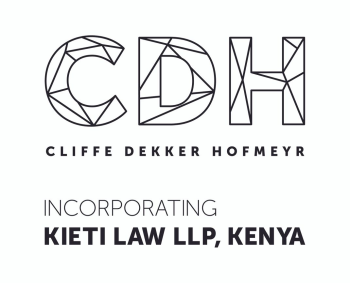In Purlish Holdings (Proprietary) Limited v The Commissioner for the South African Revenue Service,(1) the Supreme Court of Appeal recently decided on the South African Revenue Service's (SARS's) right to impose understatement penalties on Purlish Holdings (Proprietary) Limited (the taxpayer) and the quantum thereof.
During the 2011 to 2014 assessment years the taxpayer paid provisional tax to SARS, following which it submitted nil tax returns (ie, tax returns which reflect that a taxpayer has neither received income nor incurred expenditure in the assessment year). As a result, a refund became due by SARS. Given the magnitude of the refund claimed by the taxpayer, SARS initiated an audit into the taxpayer's corporate income tax (CIT) and value added tax (VAT) affairs.
The audit process found that the taxpayer had concluded consultancy agreements under which it had earned substantial income. Further, these agreements stipulated that the fees payable to the taxpayer had included VAT. Despite this, the taxpayer had:
- submitted nil returns for CIT purposes for the 2011 to 2014 assessment years;
- failed to register for VAT; and
- failed to submit VAT returns for the relevant tax periods.
Following the audit, SARS imposed understatement penalties on the taxpayer at a rate of 100% for both CIT and VAT. Pursuant to the taxpayer's objection, the rates of the understatement penalties were reduced to 25% for CIT and 50% for VAT.
The taxpayer appealed to the Tax Court, which then had to determine whether SARS had been justified in imposing the understatement penalties. However, the Tax Court went further and, using its powers under Section 129(3) of the Taxation Administration Act, increased the understatement penalties to 100% for both CIT and VAT.
The Supreme Court of Appeal gave its judgment on two aspects of the appeal:
- whether SARS had proven that it had been entitled to impose understatement penalties under Section 222 of the Taxation Administration Act; and
- whether the Tax Court had been entitled to increase the understatement penalties imposed by SARS.
Regarding SARS's entitlement to impose the understatement penalties, the Supreme Court of Appeal examined the definition of 'understatement' under Section 221 of the Taxation Administration Act. The court held that an understatement arises only when the conduct referred to in Section 221 results in some prejudice to SARS or the fiscus and that the onus to prove that prejudice rests on SARS under Section 102(2) of the Taxation Administration Act. The Supreme Court of Appeal found that prejudice is not only determinable in financial terms, but also includes the time and human capital resources that are employed when conducting the audit into the taxpayer's tax affairs.
The taxpayer submitted that SARS had suffered no prejudice, as the taxpayer had paid SARS substantial amounts of provisional tax. However, it was confirmed that SARS would be unable to allocate the aforementioned amounts to relevant governmental activities until the taxpayer submitted a return and SARS was able to assess whether there was an amount owing by or due to the taxpayer. The taxpayer's failure to submit its returns prevented SARS from carrying out its assessment. As such, the Supreme Court of Appeal held that SARS had discharged its onus to prove that prejudice had been suffered.
In deciding whether the Tax Court had been entitled to increase the understatement penalties imposed by SARS, the Supreme Court of Appeal considered:
- Section 129(3) of the Taxation Administration Act; and
- Rule 34 of the rules promulgated under Section 103 of the Taxation Administration Act (Tax Court Rules).
Section 129(3) states that, in the case of an appeal against an understatement penalty imposed by SARS under a tax act, the Tax Court must decide the matter on the basis that the burden of proof is on SARS. Further, the court may reduce, confirm or increase the imposed understatement penalty.
Rule 34 of the Tax Court Rules states that the issues in an appeal to the Tax Court will be those contained in the statement of grounds of assessment and opposing the appeal, read with the statement of grounds of appeal and, if any, the reply to the grounds of appeal.
As SARS had not raised the matter of an increase in the reduced penalties in its statement of grounds of assessment, the Supreme Court of Appeal found that it was not reasonable for the Tax Court to have increased the reduced penalties. Ultimately, it was found that the powers conferred on the Tax Court by the Tax Administration Act are limited by what the Tax Court Rules. Section 129(3) of the Tax Administration Act must be read in conjunction with Rule 34 of the Tax Court Rules.
The judgment will be welcomed by taxpayers involved in disputes with SARS regarding understatement penalties, as it reaffirms that the Tax Court cannot, of its own volition, increase an understatement penalty.
An understatement penalty may be increased by the Tax Court only where SARS has submitted in its statement of grounds of assessment and opposing the appeal, under Rule 31 of the Tax Court Rules, that the understatement penalty should be increased. This is consistent with Sections 102 and 134 of the Tax Administration Act, which expressly state that when it comes to the imposition of understatement penalties, SARS's bears the burden of proof regarding the understatement penalty to be imposed.
The judgment further illustrates that the Tax Court is a creature of statute and that it thus will follow its empowering legislation (ie, the Tax Administration Act and the Tax Court Rules).
This article was first published by the International Law Office, a premium online legal update service for major companies and law firms worldwide. Register for a free subscription.
Endnotes




